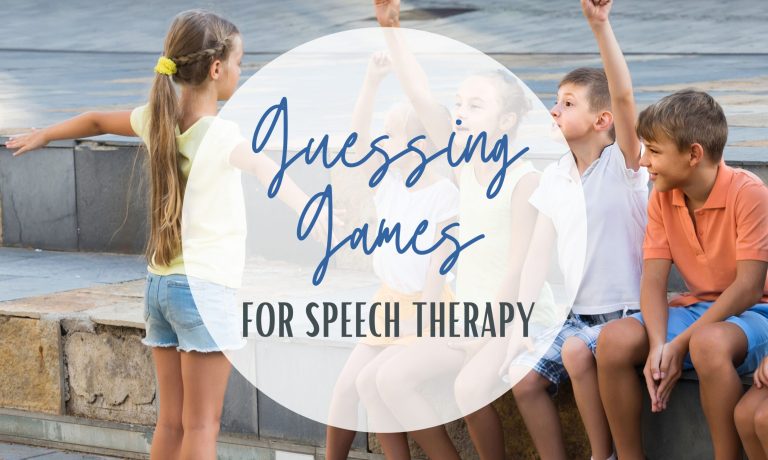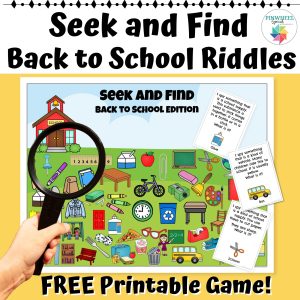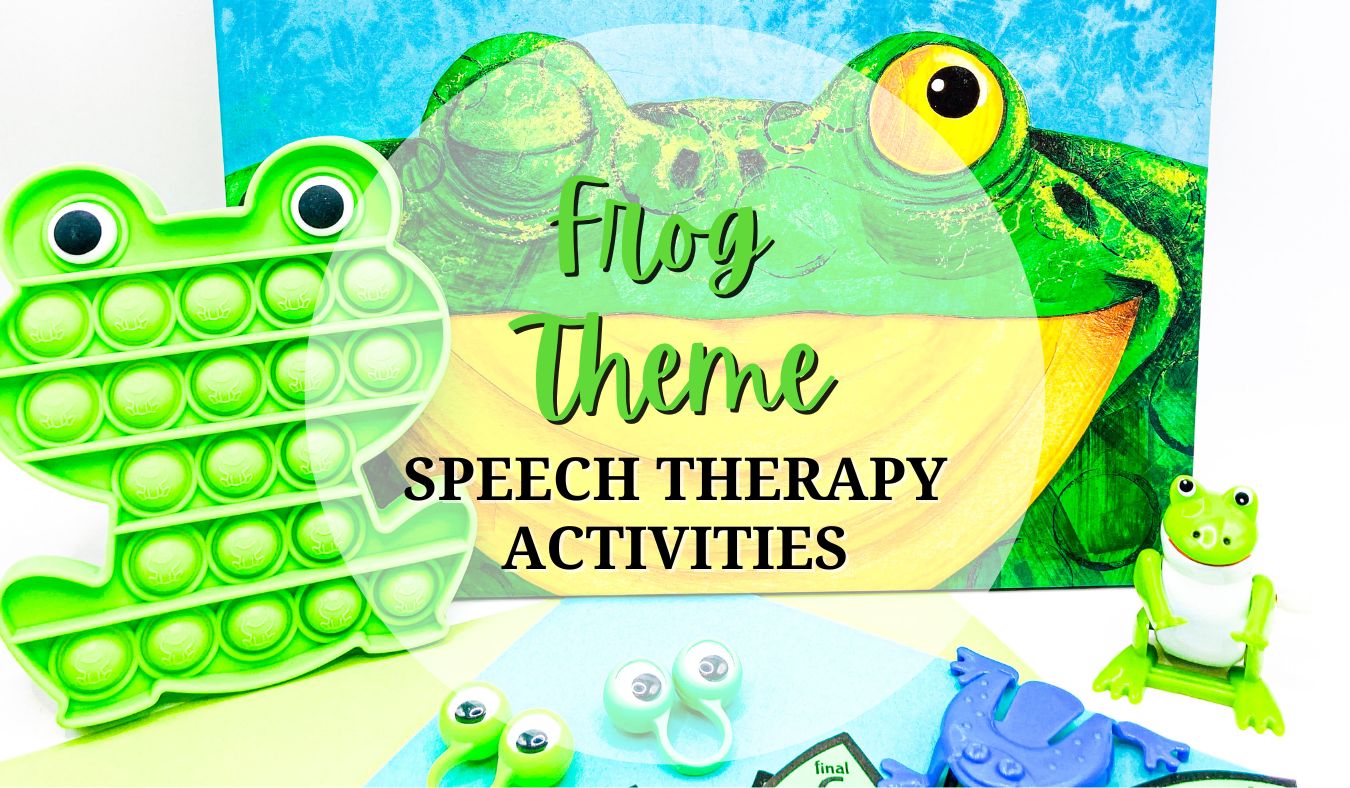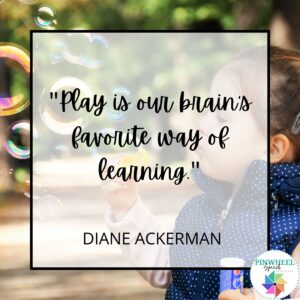
“Play is our brain’s favorite way of learning.”
Diane Ackerman
If you have read any of my blog posts, you will quickly see that I love using guessing games during my speech therapy sessions. When we are playing these games, my students don’t even realize that they are practicing their speech and language skills. As Diane Ackerman put it, “Play is our brain’s favorite way of learning.” This post summarizes the different guessing games that I love using during my speech therapy sessions.
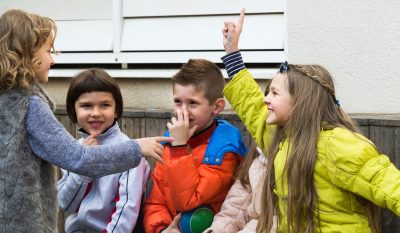
Why We Love Guessing Games...
Most guessing games have a secret picture or word that the students are trying to guess. Sometimes, I simply put an item in a box or hat and have my students try to guess the item inside by asking questions. Group members take turns asking questions in order to learn more about the secret item. Critical thinking and deductive reasoning skills are used to make inferences as they play. Some examples of common guessing games include the following: 20 Questions, Headbanz, and Guess Who.
Guessing games are ideal for mixed speech therapy groups because you can address speech carryover skills, social skills, and receptive/expressive language skills. I also love how these simple games are so easy to play wherever you are (e.g., in the hallway, on the playground). They are perfect for filling a few minutes during a speech therapy session.

Speech and Language Skills
Here is a list of some of the speech and language skills that you can target with guessing games!
Expressive Language (descriptive vocabulary, categories, comparing, object functions): Whenever you are describing an item for someone else, you are practicing expressive vocabulary and descriptive language skills. For example, when you describe an apple, it is helpful to include the category, object function, and attributes. These are all aspects of descriptive language.
Receptive Language (listening, language processing, making inferences, answering ?s): Games like Headbanz require students to listen carefully to the clues, process the linguistic information, and then make an educated guess (inference) based on the information received.
Social Language (initiating, asking questions, answering questions, taking turns, social phrases, nonverbal communication, good sportsmanship). Just about every game can be used to practice social skills when you have more than one player. Guessing games are especially ideal for practicing initiating and asking questions.
Cognitive Skills (deductive reasoning, critical thinking, problem solving, attention, working memory) In order to successfully guess the item being described, students need to pay attention to the clues, remember the details, and then use deductive reasoning skills to solve the riddles. Guessing games offer an engaging way for our students to practice these critical cognitive skills.
Speech Skills (articulation sounds, carryover, fluency): Last but not least, guessing games are a fun way to practice speech carryover skills. Your articulation students can practice their sounds in sentences and conversation. It is also a fun way to practice fluency skills!
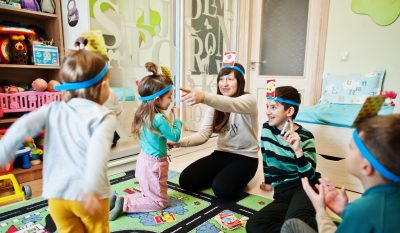
Popular Guessing Games
Many popular guessing games do not require materials (I Spy, 20 Questions). These games can be played on road trips, at the park, during walks, etc. There are also many commercially available games that can be used to practice speech and language skills. Here are a few of my favorite store bought guessing games for speech therapy:
As an Amazon Associate, I earn from qualifying purchases linked in his post.
Guess Who: During this game, students practice asking questions, listening comprehension and deductive reasoning skills as they try to guess which person is on the other player’s card.
Headbanz: In this game, each person wears a plastic headband with a secret picture attached. The other players can see the picture but the person wearing the headband does not know what it is. Each player has to ask yes/no questions to figure out what their picture is (e.g., Is it an animal? Is it a food?).
Charades for Kids: Some people might be surprised to hear that there are some valuable communication skills to be learned during a silent game of Charades. During this game, students take turns acting out a picture and the other group members try to guess which one it is. This game highlights the importance of nonverbal communicative behaviors. During my speech and language groups, I often tie this activity in with a discussion about nonverbal communication (facial expressions, body language, gestures). I realize that you can play charades without any materials but I have found that most of my students benefit from the picture cards provided in this game for visual support.

Pinwheel Speech Guessing Games
If you are looking for a digital Boom Cards activity or a quick print and go guessing game, there are also several guessing games in the Pinwheel Speech store on TPT. Here is a list of some of the guessing games that are available in our store:
Guess My… Games Boom Cards: Can you guess which one is my house? Students will practice working memory, language processing, listening for details, and deductive reasoning skills as they listen for details and try to guess the item that is being described.
Seek and Find games Printable Game and Boom Cards: Seek and Find games are the most popular resource in the Pinwheel Speech store by far. Seek and Find is a game like ‘I Spy’ where students listen to clues and try to find the items in a busy picture scene. I have an articulation version of the game as well as several seasonal Seek and Find vocabulary games. See below for a FREE Back to School Seek and Find game! Students can practice receptive/expressive language, articulation, and social language skills as they play.
Guess the Picture Boom Cards: This game is played like 20 Questions but students ask questions and then they get to reveal a small part of an image with each question. The object is to guess the image before other players. This is a fun way to practice asking questions and deductive reasoning skills.
Find the Secret Word Boom Cards: In this game, one person hides a star under an image and other players ask questions to try to find the “secret word” (similar to the game Secret Square). This game is ideal for mixed groups because the boards are organized by articulation sounds.
Making Early Inferences Boom Cards: These activities show a close up image of picture and give students riddles (clues) to help them guess the picture. These games are designed to introduce the concept of making inferences based on verbal (and visual) information received.
Picture Charades Printable Game and Boom Cards: This kid-friendly version of charades is specifically geared towards students who need visual support. Students take turns acting out a picture from a category (animal, season, action, sport, person, emotion, etc) and the other group members try to guess which one it is.
Listen! What do you hear? Boom Cards: This basic activity teaches students to listen carefully to common sounds and guess the item. It teaches listening and auditory discrimination skills.

Thank you!
I hope this blog post has inspired you to use guessing games to help your students improve their speech and language skills. Thank you for stopping by! I am offering this free School Vocabulary Seek and Find guessing game when you sign up to join the Pinwheel Speech community. Simply click on the photo below to access your FREE guessing game!

